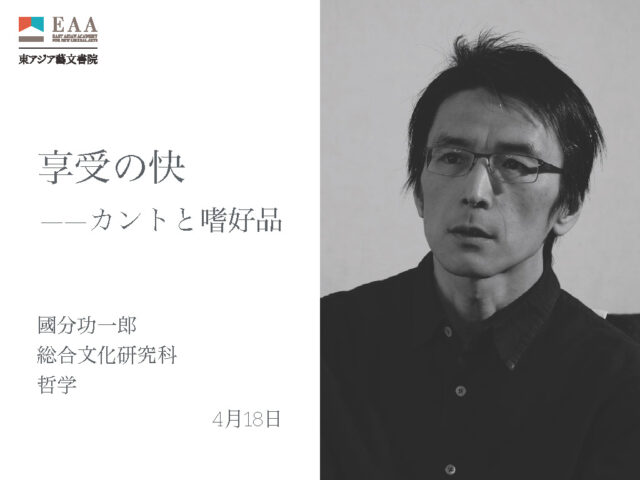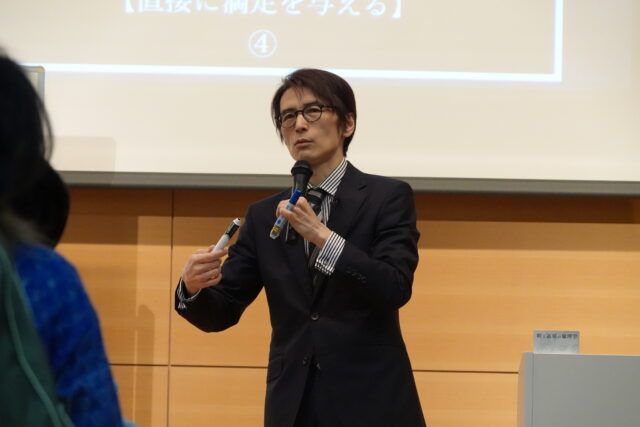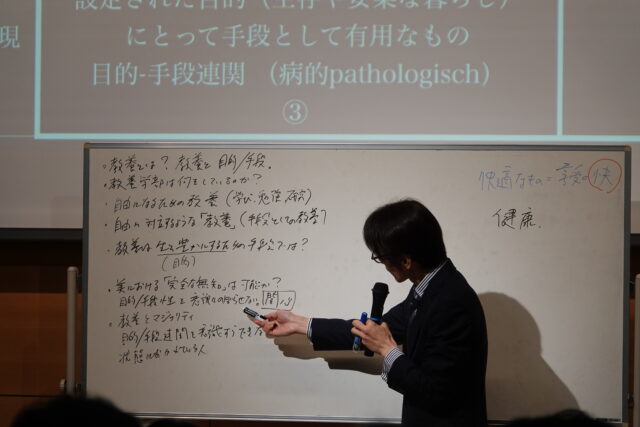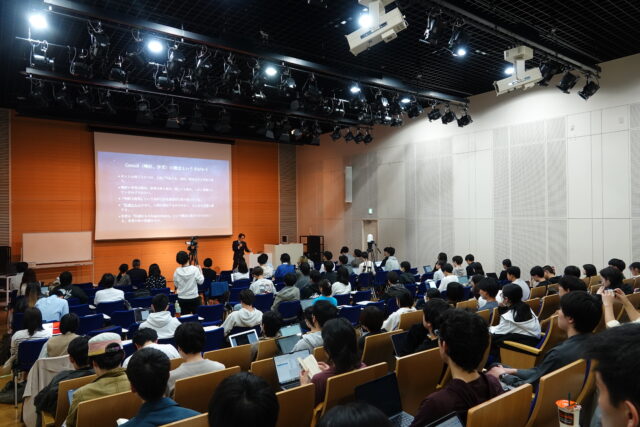
On Friday, April 18, 2025, the Academic Frontier Lecture series titled “Toward the World 30 Years from Now—Changing Liberal Arts, Liberal Arts as Change,” hosted by EAA, was held in Building 18 on the Komaba Campus. The second lecture was delivered by Professor Koichiro Kokubun from the Graduate School of Arts and Sciences, under the title “The Pleasure of Enjoyment: Kant and Indulgences.”

Professor Kokubun structured his analysis around Kant’s “objects of pleasure” from the Critique of Judgment and the Critique of Practical Reason. Focusing particularly on the concepts of the “sublime” and the “pleasant”, he explored the implications for enjoyment.
The “sublime” envolves both purpose and means and is closely tied to everyday activities such as survival and the pursuit of comfort. By contrast, the “pleasant” is detached from purpose and means, offering direct satisfaction through simple enjoyment and pure appreciation. Although the “sublime” and the “pleasant” are deeply interconnected, Professor Kokubun argues that in a capitalist society driven by mass production and overconsumption, the value of the “pleasant” has been systematically dismissed. Reclaiming the pleasure of enjoyment that has been removed from our everyday lives may serve as a catalyst for broader social transformation.
Following the lecture, students engaged in a lively discussion with Professor Kokubun on the connection between” enjoyment” and the the series’ central theme —“liberal arts,” as well as the privilege embedded within the idea of enjoyment. Building on this discussion, I would like to further explore the theoretical link between the “pleasure of enjoyment” and the concept of interdependence. While discussions of enjoyment and indulgence have often focused on individual bodily and emotional experiences, recent feminist theory and the ethics of care emphasize the inherent interdependence between the self and others in everyday life. Situating “enjoyment” within this ethical relationship may open new avenues for dialogue between enjoyment and liberal arts, as well as with the context of capitalist urban society.


Report by WEI, YUN-DIAN (EAA Research Assistant)








